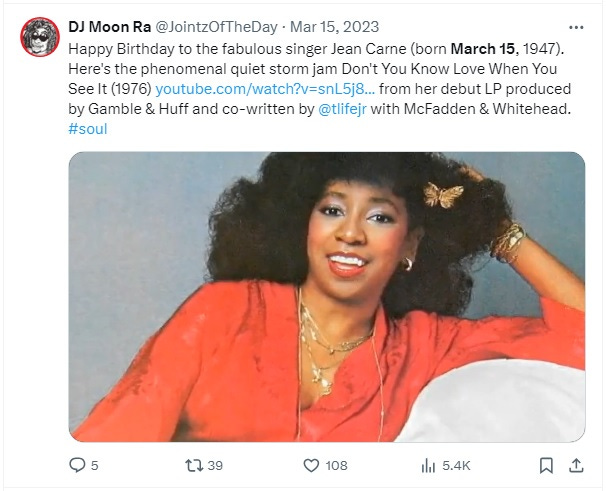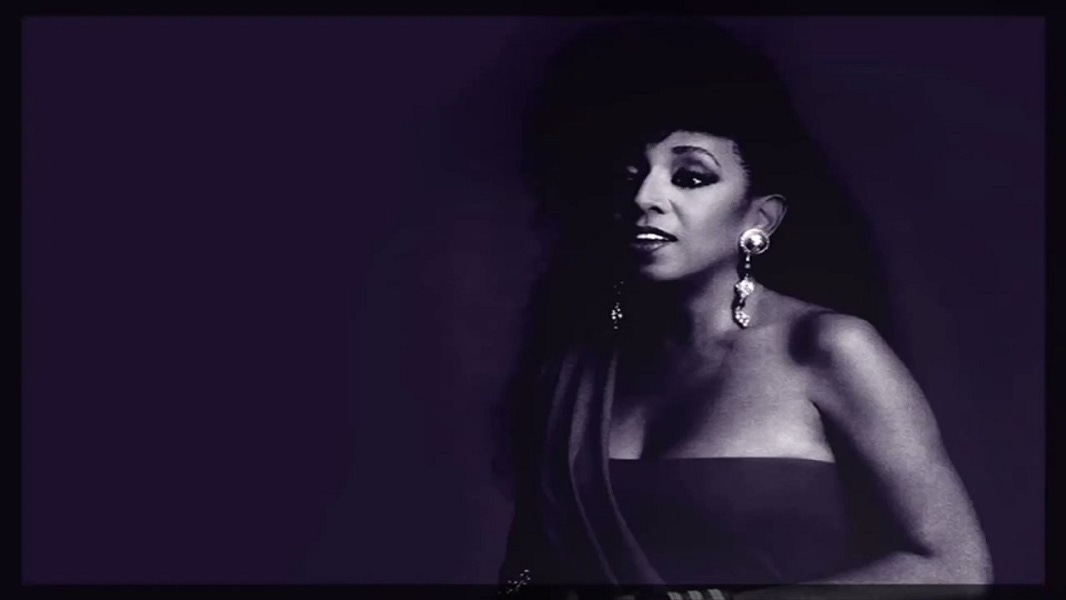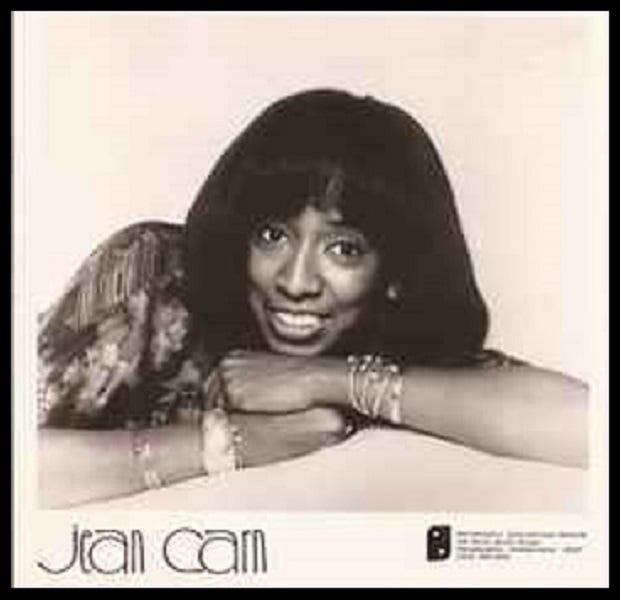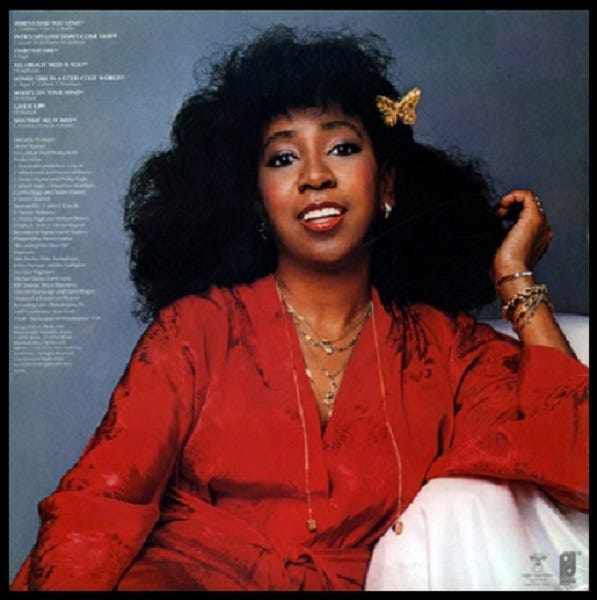Jean Carne (born March 15, 1947) – Don't You Know Love When You See It (1976)
This quiet storm Philly soul gem from the great singer's debut LP was co-written by Leon Huff, McFadden & Whitehead, and T. Life, produced by Gamble & Huff.
Watch video on YouTube
View most updated version of this post on Substack
Search our full archives
Jean Carne is an exceptionally gifted singer who collaborated with her first husband Doug Carn on several acclaimed jazz records in the early 1970s before signing to Philadelphia International Records as a solo artist.
Born in Columbus, Georgia, Sarah Jean Perkins started singing at age three and joined her church’s choir when she was four years old. She planned to attend Juilliard in New York City to study music but instead married pianist Doug Carn, joined his jazz group as a vocalist, and the couple moved to Los Angeles.
She appeared on a series of his early seventies Afrocentric jazz albums, released on Black Jazz/Ovation. The first was Infant Eyes (1971), which celebrated the birth of their son. The Horace Silver composition “Peace” featured lyrics written by Doug and vocals by Jean. It was released as a single, but did not chart.
“All we need in this world is to have a time of peace / A time of life and love with all guidance from above / A time when man will understand being free / All in a time of peace / We need peace for our children / So that they may live a better life”
Jean recorded two more albums with Doug Carn, Spirit Of The New Land (1972) and Revelation (1973). The couple then divorced, and she stepped out as a solo artist by signing to Philadelphia International Records. She was originally billed as Jean Carn but altered her last name to “Carne” mid-career.
In 1976, her self-titled debut solo album came out on PIR, with most songs produced by Kenny Gamble and Leon Huff. Its lead single “Free Love” which they co-wrote and produced hit #23 R&B and #18 on disco charts. Chicago DJ legend Ron Hardy later remixed it for one of his renowned edits. Carne memorably performed it live on the local Philadelphia music show Steel Pier, broadcast on the city’s ABC affiliate WPVI-TV.
On the same 1977 episode of Steel Pier, she also sang the album’s phenomenal closing cut “Time Waits For No One,” co-written and produced by John Whitehead, Gene McFadden, and Victor Carstarphen.
Her debut album’s masterpiece was arguably the quiet storm Philly soul gem “Don't You Know Love When You See It.” Produced by Gamble and Huff, it was co-written by Huff, Whitehead, McFadden, and the unsung guitarist and songwriter/producer Theodore Life aka T. Life.
See our collection of earlier posts on Philly Soul for more on the unsung heroes behind the Sound of Philadelphia.
For her next album Happy to Be with You (1978), Gamble and Huff co-wrote and produced the superb jam “Don’t Let It Go to Your Head.” It initially peaked at #54 R&B, but became a dancefloor classic, and was covered by the Brand New Heavies in 1992 who hit #24 in the UK with their version.
Carne released two more albums on PIR and its sister label TSOP before signing to Motown in 1982. One of the funkiest tracks on Trust Me (1982), her sole album for the label, was the aptly titled “Super Explosion.” Never released as a single, although it should have been, this stellar disco-funk cut was co-written by Alice Coltrane’s sister Marilyn McLeod and guitarist/songwriter Mel Bolton. Like the rest of the LP, it was produced by Norman Connors.
Happy Birthday to the great Jean Carne.
Further info:
“Doug and Jean Carn: The First Couple of Black Jazz,” Connect Savannah, September 25, 2013.
“Rediscovering The Enormous Social And Spiritual Legacy of Black Jazz Records,” NPR, September 22, 2020.
“Soul veteran Jean Carne,” interview, The Guardian, May 24, 2022.
#soul #jazz #funk #disco #BlackJazz #PIR #TSOP #JeanCarne











I only own 'Infant Eyes' and 'Revelation' and both are superb, deep, spiritual, and incredibly soulful albums.